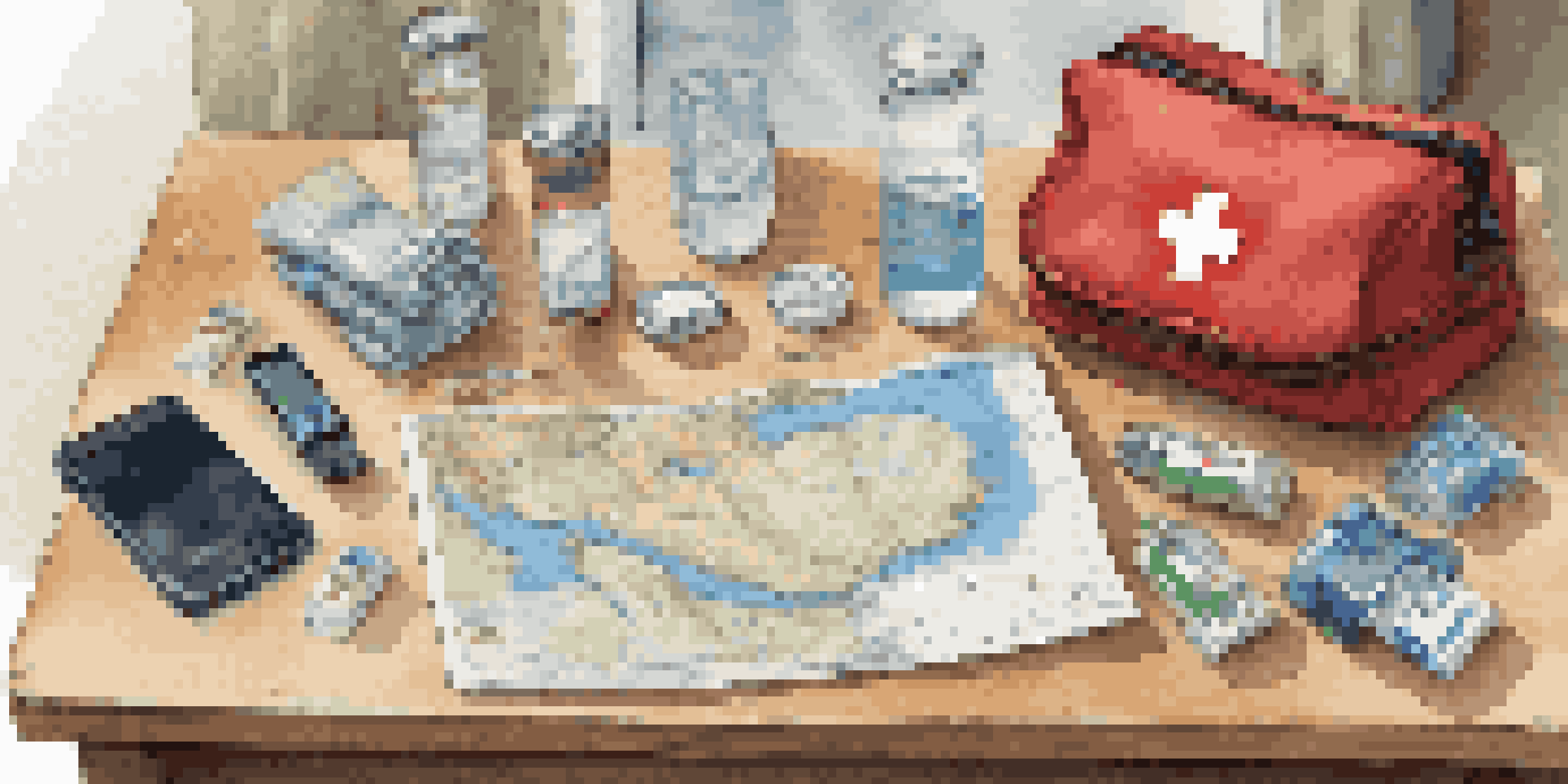Emergency Preparedness for Business Travelers

Understanding the Importance of Emergency Preparedness
When you're on a business trip, you're often in unfamiliar territory, making emergency preparedness crucial. Being ready for unexpected situations can mean the difference between a minor inconvenience and a serious crisis.
By failing to prepare, you are preparing to fail.
Think of it like packing an umbrella for a trip; you may not need it, but it's better to have it just in case. Similarly, having an emergency plan in place ensures you're not caught off guard when things go awry.
From natural disasters to health emergencies, understanding the importance of being prepared can help you navigate challenges with confidence.
Research Your Destination Before Departure
Knowing your destination is the first step in effective emergency preparedness. Research local emergency services, hospitals, and evacuation routes before you arrive.

You can also check travel advisories and weather conditions to gain insight into potential risks. This knowledge not only keeps you informed but also empowers you to make better decisions during your trip.
Be Prepared for Emergencies
Having an emergency plan and kit can prevent minor issues from escalating into serious crises.
For example, if you're traveling to an area prone to earthquakes, knowing how to react can save lives. Always be proactive in your research.
Create a Personal Emergency Contact List
Having a personal emergency contact list can be a lifesaver when you're away from home. Include key contacts such as family members, colleagues, and your country's embassy or consulate.
The more you know, the less you have to worry.
Make sure to store this list on your phone and keep a printed copy in your wallet. If an emergency arises, having quick access to these contacts can streamline communication and support.
Consider using a secure app that allows you to share your location with trusted contacts, so they know where you are in case of an emergency.
Pack an Emergency Travel Kit
An emergency travel kit is like your safety toolbox while on the go. Include essential items such as a first aid kit, flashlight, portable phone charger, and any necessary medications.
You might also want to carry water purification tablets and non-perishable snacks. These items can sustain you during unexpected delays or emergencies.
Research Before You Travel
Understanding local risks and resources is essential for making informed decisions during your trip.
Think of your travel kit as your personal safety net; having the right tools at your disposal can help you manage many unforeseen events with ease.
Stay Informed with Local News and Alerts
Staying informed is key to navigating any emergency situation. Make it a habit to check local news sources or download relevant apps that provide real-time alerts about weather conditions, safety threats, or other emergencies.
This information can help you make quick decisions, such as whether to stay put or evacuate. Many cities also offer text alert systems that provide updates on emergencies directly to your phone.
By keeping your finger on the pulse of local happenings, you can react promptly and appropriately when situations change.
Know Your Company’s Travel Policies
Understanding your company’s travel policies can be crucial for your safety. Many organizations have specific guidelines for emergencies, including evacuation plans and insurance coverage.
Familiarize yourself with these policies before you embark on your trip. Knowing what resources your company provides can give you peace of mind and help you act more decisively in a crisis.
Communicate Regularly with Team
Keeping in touch with your team enhances safety and ensures support during unexpected situations.
For instance, if your employer offers travel insurance, ensure you're aware of the coverage details. This knowledge can significantly impact how you manage emergencies.
Maintain Regular Communication with Your Team
Keeping in touch with your team while traveling can enhance your safety. Regular check-ins can help your colleagues know your whereabouts and status, which is especially important during emergencies.
Use communication tools like messaging apps or video calls to maintain that connection. You can also share your itinerary with your team, so they are aware of your travel plans.

In case of an emergency, these regular updates can help your team assist you more effectively and ensure that you are not alone.
Practice Your Emergency Response Plan
Having an emergency response plan is only part of the equation; practicing it is just as vital. Take the time to run through potential scenarios, such as what to do in case of a fire or natural disaster.
Role-playing these situations can help reduce anxiety and increase your confidence when faced with real emergencies. Consider involving colleagues to create a more realistic practice experience.
Think of it like a fire drill at school; the more familiar you are with the plan, the more effectively you can respond when it really matters.